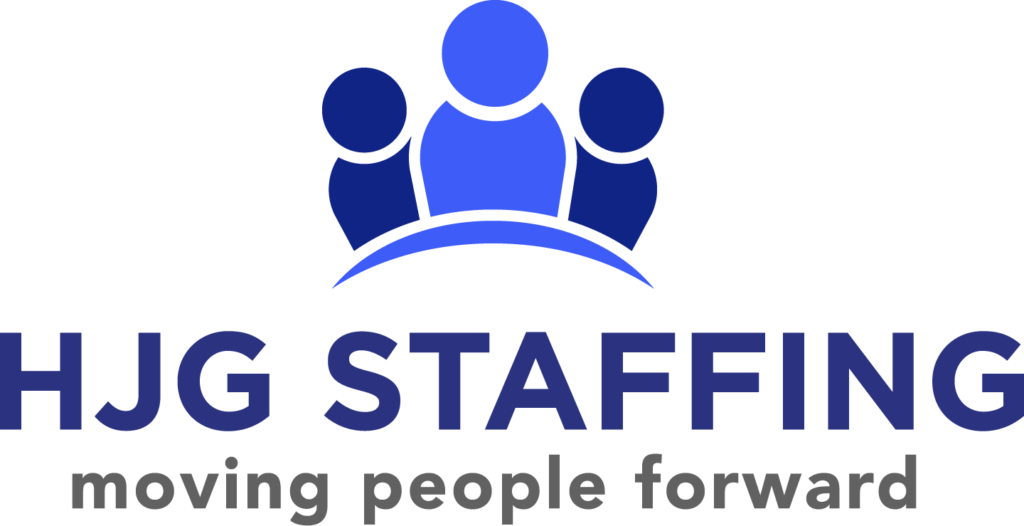To some degree, all jobs take a certain amount of creativity. Whether writing a proposal, creating a new, delicious dish or finding innovative marketing tactics, creativity is often the common denominator. For most of us, though, there is a time when creative block is inevitable. It could be tiredness, burn out or simply a lack of new ideas. Identifying the reason can be helpful, but it doesn’t always offer a solution. Say for instance, you’re tired, which prevents ideas from flowing like they usually would. Knowing you’re tired can help you understand that getting a better night’s sleep is ideal; however, in the moment, it doesn’t provide ideas for your project. Today, we’re exploring a variety of actions you can take to help combat creative block.

We talk about lists quite often here at HJG staffing, but it’s simply because they work. Studies show that those who write down their goals and objectives have a higher chance of completing them than those who do not. In this instance, we encourage you to write whatever comes to mind. It might have nothing to do with your project or task at first or at all. However, the art of writing stimulates the mind and gets ideas flowing. Also, it could help you identify things on your mind that could be blocking your creativity and mindset. Maybe you have a doctor’s appointment at the end of the week that’s giving you a fair share of anxiety. Perhaps when you write words or thoughts on paper, you find yourself writing “appointment” or “anxiety.” This can be helpful in identifying your creative block. This can also allow you to try coping mechanisms and alternative solutions.
On the other hand, writing might spark an eventual idea. “As a teacher, I try to make my lesson plans fun and engaging for students,” says Mark, an elementary school teacher. “But there are days when I’m so worn out and can hardly find motivation.” Mark says that writing down words that pop into his mind assist in sparking creativity. “Once there was a unit on numbers. I was never a huge fan of math, so it’s extra hard for me to find creativity in this subject. I found myself writing ‘boring’ and ‘difficult.’ That’s when I realized I could ask the students who find math boring and difficult what would inspire them to learn. And I could ask the students who enjoy math to help the others.” Writing often triggers ideas when it feels like our creativity tanks are empty. Yet, this isn’t always the case. Sometimes, it takes something different.

Occasionally, in the height of creative block, it’s easy to forget that the internet is a place with almost infinite resources. For instance, when it comes to finding blog post topics, a quick google search provides lists upon lists of ideas that you can take and make your own. Pinterest has visual lesson plans, art projects, organizational inspiration and more. YouTube collects videos of motivational speeches, how-tos and so much more. Even opening your favorite online playlist could give you a boost of energy and creativity. The internet, when used productively, can be an excellent source to find inspiration. The most important thing is to make those ideas your own by adding a personal twist. “I had an idea for a bookshelf shaped like a tree,” says Janet, a children’s librarian. “I’m not super crafty, but a quick google search helped me find a simple way to gather the materials and create something magical. I also sought the help of the art teacher.”

That brings us to the next point: don’t be afraid to ask for help. Most workplaces pride themselves on maintaining an atmosphere of teamwork. If a project is weighing you down, there is nothing wrong with shooting an email to your team asking for input or ideas. This not only promotes teamwork, but it also creates an inclusive atmosphere where people feel more comfortable reaching out for help. We all have off days, even weeks, and it’s nice to lean on one another if possible. Plus, other departments have their own unique insight into your company or project. For instance, a marketing team could greatly benefit from input of the sales department. Sales will have a different perspective and know what clients want. Asking for help is beneficial and often the solution to garnering creative ideas.

Another option is media! We mentioned earlier that listening to a motivational playlist or watching a YouTube video could spark inspiration, and it’s true. Movies, music, videos, photographs, poems, marketing campaigns, baked goods. etc. are all pieces of art that someone took the time to bring to life. Have you ever watched a movie or read a book that instantly inspired you? If so, pay attention to the feeling. “When I watched movies growing up, I would obsess over the colors and panoramic shots. It wasn’t until I was a bit older that I realized I wanted to create similar art. Now photography is one of my biggest hobbies,” says Joan. The things that spark joy and inspiration for us might not directly translate to our 9-5, but they just might. When ideas are shared, it gives others the chance to feel accepted, understood or to learn something new. On the flip side, shared ideas can also have the opposite effect, helping you see what you don’t want, or what you want to change for the better.

Finally, trudge on. It might seem counterintuitive, and, in some ways, it is. Unfortunately, motivation isn’t always there. There could be countless reasons, but the bottom line is that creative block can feel frustrating and even impossible to combat. We never know when ideas will restock the empty shelves of our brain. If all else fails, just do something. Erik, a YouTube creator, likes to post weekly videos to keep his audience engaged and get the most out of the algorithm. But sometimes, it feels like exhausting, annoying work. “If I waited every week for ideas to magically appear, I’d wait for months in some cases.” Erik takes breaks when he needs to, but he also understands that feelings come and go. “There are times when I feel like I have one great idea after the next, but I know it won’t last forever. There are also times when I had great ideas but no motivation to put them to action.” In these instances, Erik trudges on and finds that once he starts, the inspiration and motivation often follow.
There is a balance between being gentle with yourself and pushing yourself when your idea well runs dry. Ultimately, inspiration and ideas will come and go, but you will be there in the end. Be gentle with yourself, try new things to spark creativity, ask for help and push forward. Be patient with yourself, and if you need a break, take one. Sometimes a break is all you need to restore your mind.



